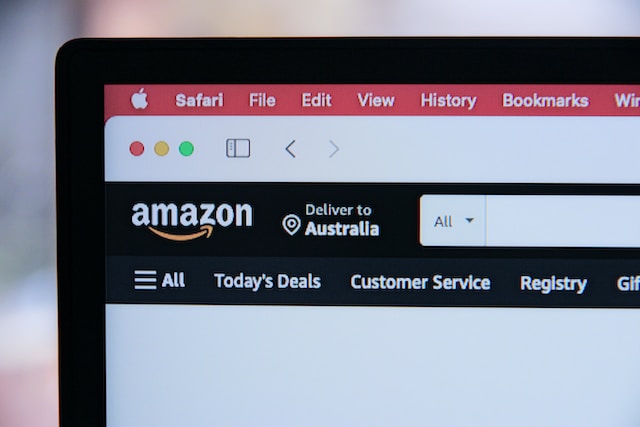
Introduction: Unlocking E-commerce‘s Hidden Data Treasure
Imagine having a powerful lens that reveals the intricate dynamics of Amazon‘s massive marketplace—a tool that transforms raw digital information into strategic business intelligence. Web scraping represents precisely this transformative capability, offering entrepreneurs and researchers unprecedented insights into product trends, pricing strategies, and consumer behavior.
In today‘s hyper-competitive digital landscape, understanding how to effectively extract and analyze Amazon‘s product data isn‘t just a technical skill—it‘s a critical business advantage. This comprehensive guide will walk you through the sophisticated world of Amazon web scraping, demystifying complex techniques and providing actionable strategies that can revolutionize your approach to market research.
The Evolving Landscape of E-commerce Data
The digital marketplace has undergone dramatic transformations over the past decade. What was once a simple online shopping platform has become a complex ecosystem generating terabytes of data every minute. Amazon, with its vast product catalog spanning millions of items across countless categories, represents the ultimate data goldmine for businesses seeking competitive intelligence.
Understanding Web Scraping: Technical Foundations
Web scraping represents a sophisticated data extraction technique that allows automated retrieval of information from websites. When applied to Amazon, this methodology enables businesses to collect detailed product insights without manual intervention.
Technical Architecture of Web Scraping
At its core, web scraping involves sending HTTP requests to web servers, parsing HTML responses, and extracting relevant information using specialized algorithms. For Amazon, this process becomes significantly more complex due to the platform‘s dynamic content rendering and robust anti-scraping mechanisms.
Modern web scraping solutions must navigate several technical challenges:
- Dynamic JavaScript-rendered content
- Sophisticated bot detection systems
- Constantly changing website structures
- Complex authentication requirements
Proxy Management and IP Rotation
Successful Amazon data extraction relies heavily on intelligent proxy management. By rotating IP addresses and mimicking human browsing behavior, scrapers can minimize detection risks and maintain consistent data collection capabilities.
Professional scrapers typically utilize:
- Residential proxy networks
- Datacenter IP pools
- Geographic IP distribution strategies
- Intelligent request throttling mechanisms
Legal and Ethical Considerations in Web Scraping
Navigating the legal landscape of web scraping requires nuanced understanding and careful implementation. While data extraction offers immense business value, practitioners must remain vigilant about potential legal implications.
Amazon‘s Terms of Service Compliance
Amazon‘s explicit guidelines prohibit unauthorized automated data collection. Responsible scrapers must:
- Respect robots.txt restrictions
- Avoid excessive request volumes
- Use official APIs when possible
- Maintain transparent data collection practices
Ethical Data Collection Principles
Beyond legal considerations, ethical web scraping demands:
- Respecting website infrastructure
- Minimizing server load
- Protecting individual privacy
- Maintaining data integrity
Advanced Scraping Methodologies
Programming Language Ecosystem
Different programming languages offer unique advantages for web scraping:
Python: The Preferred Scraping Language
Python remains the most popular choice due to its robust libraries like Scrapy, BeautifulSoup, and Selenium. These tools provide comprehensive web scraping capabilities with relatively low complexity.
JavaScript Alternatives
Node.js and Puppeteer offer powerful browser automation capabilities, enabling sophisticated scraping techniques that handle complex JavaScript-rendered content.
Cutting-Edge Extraction Techniques
Modern web scraping transcends simple HTML parsing. Advanced techniques now incorporate:
- Machine learning pattern recognition
- Adaptive extraction algorithms
- Real-time data validation
- Intelligent error handling
Practical Implementation Strategies
Tool Selection and Configuration
Choosing the right web scraping tool depends on multiple factors:
- Technical expertise
- Project complexity
- Budget constraints
- Scalability requirements
Recommended tools include:
- Scrapy (Python-based framework)
- Selenium WebDriver
- Puppeteer
- BeautifulSoup
- Octoparse (no-code solution)
Step-by-Step Scraping Process
Successful Amazon product data extraction involves:
- Environment preparation
- Target identification
- Request mechanism implementation
- Data parsing and extraction
- Storage and processing
Market Analysis and Business Applications
Competitive Intelligence Generation
Web scraping transforms raw data into strategic insights:
- Real-time pricing trend analysis
- Competitor product positioning
- Market segment mapping
- Consumer behavior understanding
Investment Decision Support
Extracted Amazon data provides critical inputs for:
- Product performance evaluation
- Market opportunity assessment
- Trend forecasting
- Risk mitigation strategies
Future Trends in Web Scraping Technology
Emerging technologies are reshaping web scraping:
- AI-powered extraction algorithms
- Blockchain-verified data collection
- Enhanced privacy protocols
- Distributed computing architectures
Conclusion: Transforming Data into Strategic Advantage
Web scraping represents more than a technical skill—it‘s a strategic approach to understanding complex market dynamics. By combining advanced technical capabilities with ethical practices, businesses can unlock unprecedented competitive intelligence.
Final Recommendations
- Invest in continuous learning
- Stay updated on technological advancements
- Prioritize ethical data collection
- Develop adaptable scraping strategies
Disclaimer: Always ensure compliance with Amazon‘s terms of service and applicable legal regulations when implementing web scraping techniques.










